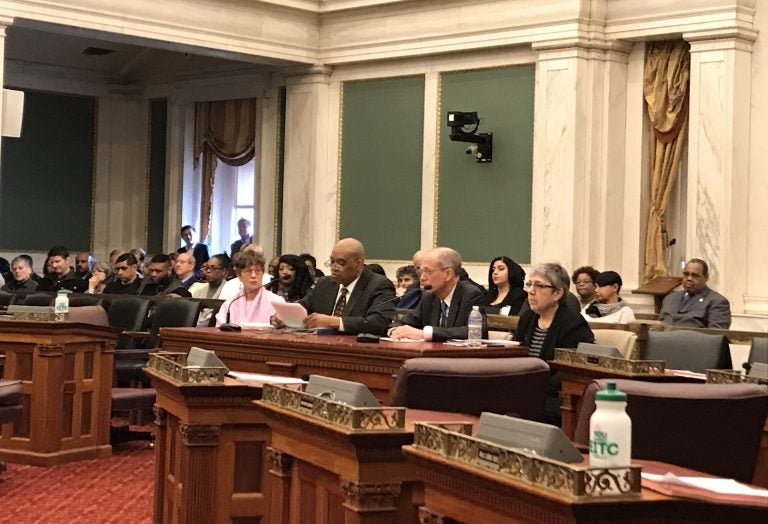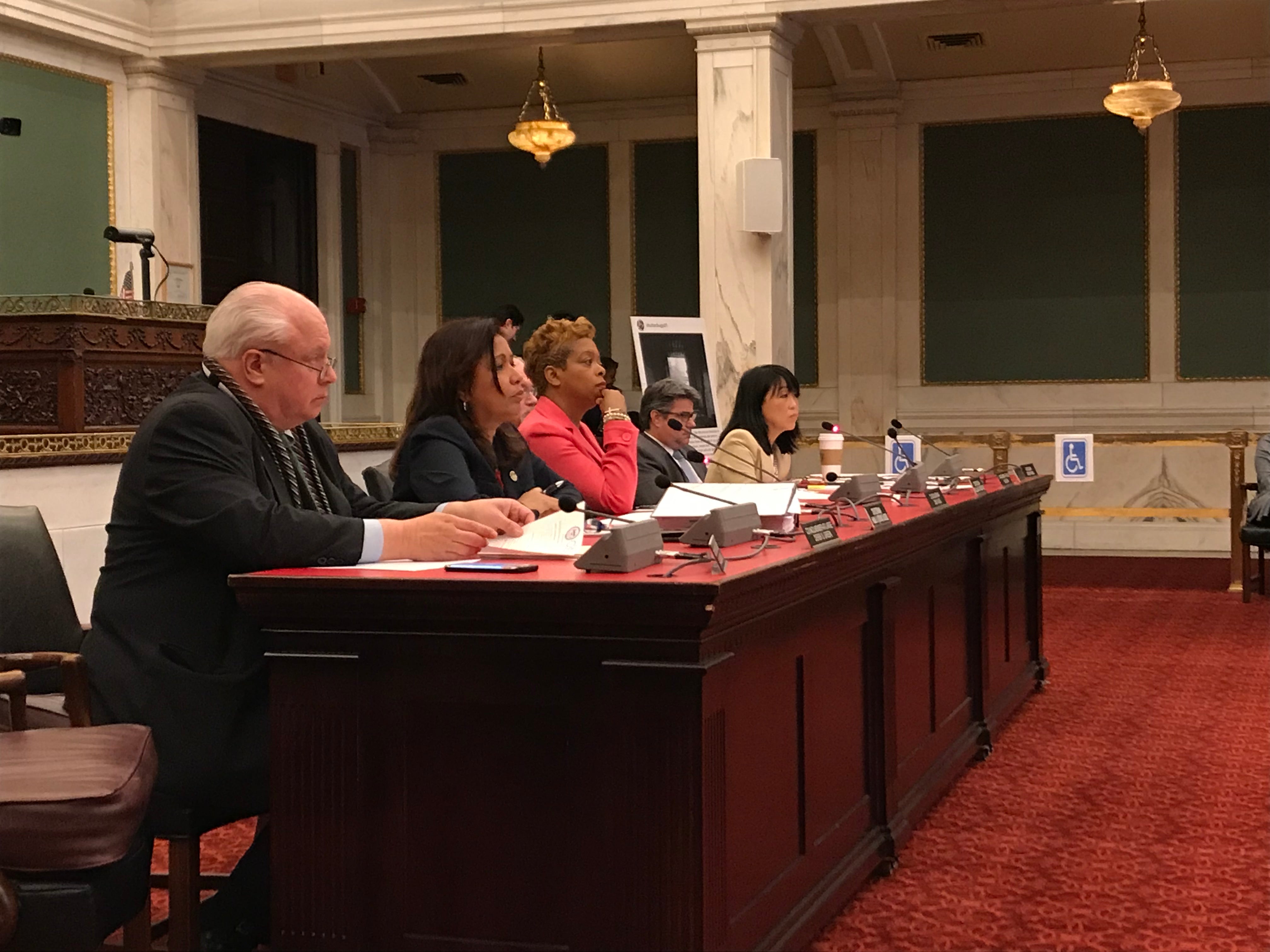Philly Council members grill city officials on efforts to deal with opioid crisis
Council members’ questions for city officials took up so much of the three-hour hearing that other speakers, including treatment providers, did not have a chance to speak.
Listen 2:06
Department of Behavioral Health and Intellectual disAbility Services Commissioner David Jones testifies at a City Council hearing on the opioid crisis. (Joel Wolfram/WHYY)
Philadelphia City Council members grilled city health and human services officials Monday on their efforts to address the opioid crisis.
They questioned officials during a three-hour hearing on topics ranging from the overprescription of painkillers and the evidence supporting medication-assisted treatment, to how the city is dealing with the most severely addicted people living in homeless encampments in the Kensington neighborhood.
Liz Hersh, director of Philadelphia’s Office of Homeless Services, said the city was close to figuring out a plan for dealing with the estimated 200 people who have taken up residence under the bridges along Lehigh Avenue.
Hersh said the plan was based on a successful approach used to clear out encampments in San Francisco, where outreach workers would engage each person one by one and work on finding housing. It would be based around a new shelter or “respite” where people could be referred to drug treatment and social services.
Currently, there is only one shelter of this kind in Kensington, and it has just 40 beds. Hersh, who said the city is close to adding another site with 40 more, said it will attempt to open a third in the long term.
“Our goal is to open that second respite as soon as we can, and then the third in the general area, which would then give us 120 emergency beds,” Hersh told Council members.
Though it’s still not enough beds to meet the need, city officials said they expect some people will be able to return to their families and won’t need shelter beds.

Councilwoman Maria Quiñones-Sánchez, who represents Kensington, said the city isn’t moving fast enough to clear the encampments, which have put a strain on area residents for months. She predicts it will be harder to get people off the streets once warmer weather arrives.
“We have enough partners in this room alone that we should not have anybody in an encampment,” she said. “And I think we just send a horrible message that this is OK.”
Part of the difficulty, Hersh said, is finding a location for a new shelter in a community where many residents are opposed to opening new facilities that would attract drug users.
“You know this as well as I do,” she said to Quiñones-Sánchez.
“As many people as would line up and say we need more beds, there are going to be that many who line up and say, ‘Put them out at 48th and Market,’ ” Hersh said, referring to distant West Philadelphia.
Council members also asked what the city’s Medicaid-funded treatment system is doing to help people suffering from addiction, including a long exchange about medication-assisted treatment or MAT. City officials touted their work to expand the use of medications, such as methadone, Suboxone, and Vivitrol, that have assisted addicts in their recovery.
Councilman Mark Squilla, who also represents parts of Kensington, wanted to know how many people who use those medications are able to wean themselves off of them over time. Squilla compared medication-assisted treatment to the controversial safe injection sites the city is pursuing to reduce overdose deaths.
The comparison reflected the attitudes of some traditional addiction treatment providers who are opposed to MAT on the grounds that it provides users with another drug to help them stay clean.
But Dr. Geoffrey Neimark, the chief medical officer for Community Behavioral Health, told Squilla the analogy wasn’t accurate because the medications are used in treatment “that’s highly effective and that works, and that at the end of the day, saves lives.”
“The more we argue around whether it works or not, the less likely we’re going to get to … the outcomes we want we achieve,” Neimark said.
Council members’ questions for city officials took up so much of the three-hour hearing that six other panels of speakers on the agenda — including treatment providers, advocates, and community members — didn’t get a chance to testify.
Casey O’Donnell, the CEO of Kensington’s Impact Services, was slated to speak. He said the hearing could have covered more ground if Council members had been better educated about the nature of opioid addiction ahead of time.
“I think City Council needs to get in front of experts on the science of opioid dependence and abuse and have a deeper understanding of what it is to overcome addiction to substances,” O’Donnell said.
O’Donnell and other speakers will have another opportunity to testify at an April 4 hearing in Kensington.
WHYY is your source for fact-based, in-depth journalism and information. As a nonprofit organization, we rely on financial support from readers like you. Please give today.





